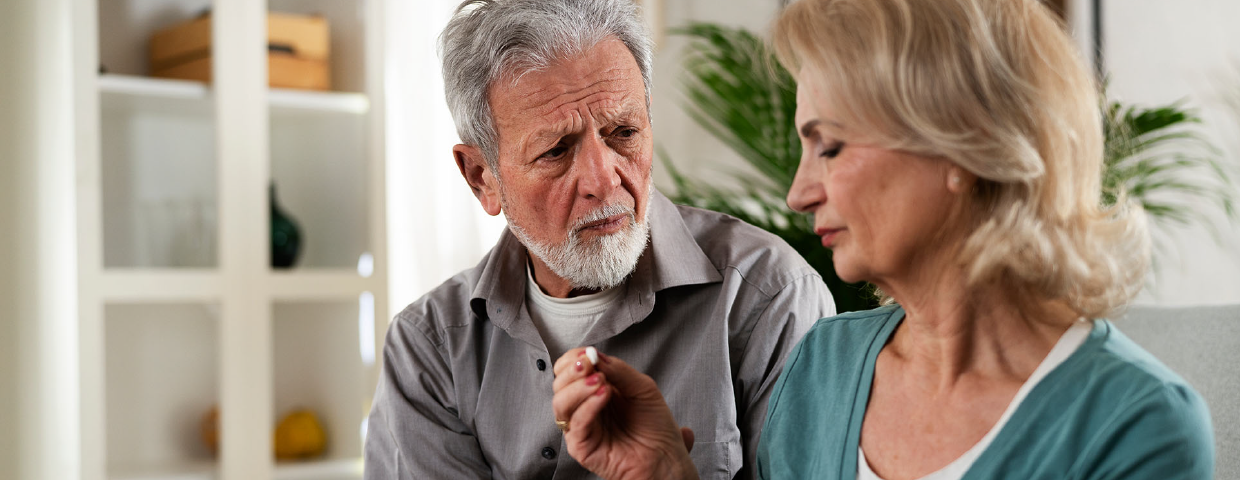
The nation is seeing a rise in drug overdose deaths and Alabama is suffering greatly. Jefferson County saw a record high 25% increase in 2020 which mirrors national data. The CDC recorded the highest yearly number of fatal overdoses ever in the U.S. in May 2020. The United States is on its way to surpassing 100,000 overdose deaths this year, something which has never occurred before.
It is more important than ever before to bring awareness, understanding, and compassion to this issue. Opioid addiction can strike anyone and it can happen before you know it. Getting out of an addiction is difficult but not impossible. Learn how you can spot the beginning signs of addiction, how to safely taper opioid usage, proper disposal methods of excess drugs, medication-assisted treatment options for opioid addiction, and how you can get trained to use Naloxone / Narcan.
Spot the Early Signs of Opioid Addiction
Doctor prescribed medications require honest feedback from the patient. A doctor can’t really know what level of pain you are in or how an injury is affecting you unless you clearly and honestly communicate with them. Be careful not to slip into taking pain medication simply because it was prescribed to you. Keep your primary care physician (PCP) up-to-date on your medication usage and needs. Don’t be afraid to ask your PCP questions about safely lowering your dosage of pain medication.
It can be hard to admit when we have a problem. If you notice yourself or a loved one experiencing any of the following, please contact us to learn what next steps you can take:
- Drastic mood changes
- Taking medication pre-emptively or before any pain is felt
- Borrowing medication from others
- “Stretching” pain levels to obtain higher dosages or to remain at the currently prescribed dosage
Opioid addiction does not care who you are, where you live, what type of job you have, it does not discriminate for any reason. Everyone is at risk of falling into addiction and the sooner it’s recognized the easier it is to get out.
We need to stem the tide of the opioid epidemic. The only way forward is with compassion, care, and healing. We can help ourselves, our loved ones, and our communities by being aware of opioid addiction signs and taking action when needed.
How to Safely Taper the Usage of Opioids
Work with the medical professional who prescribed your medication to keep track of your pain management. Keep notes on any changes to your dosage that reflect the impact on your pain and daily life. Make sure your support network knows of any changes and is trained on using Naloxone in the event of an overdose. Be aware of your mental health during dose changes because depression, anxiety, and other symptoms may occur.
If you have used opioids for more than a year, your dosage may only be decreased by 10% per month to wean you off of the drug. Those who have used opioids for less than a year may be able to drop their dosage by 10% per week. The process of detoxing from opioid addiction can be very dangerous. If you are struggling with reducing your usage of opioids, Medication-Assisted Treatment may be a good fit for you.
How to Properly Dispose of Excess Pills
It’s important to quickly and properly dispose of excess medication to ensure it isn’t used inappropriately. You don’t want to toss medication in your trashcan if it can be avoided, but not every medication is safe to be flushed down the toilet either.
The best way to dispose of excess medication is through one of the DEA’s Drug Take Back locations but if there is not one close enough to your location, you can also check the FDA Flush List to see if your medication is listed as safe for disposal that way.
If you cannot reach a take-back location and your medication is not safe to flush, the FDA advises you to mix your medications with something unappealing like cat litter or dirt in a sealed bag or container before placing them in the trash. Any medication bottles or packaging should be stripped of any identifying information before being recycled or otherwise disposed of.
Medication-Assisted Treatment
If you’ve struggled with overcoming opioid use disorder there are options out there. Medication-Assisted Treatment offers promising results as a stepping stone in an individual’s recovery journey. Detox can be dangerous if attempted alone, relapse can lead to easier overdoses, and recovery can’t be reached if your life ends prematurely. Family Life Center is here to talk with you about all of the options available to you. We work with you to determine what path is best with no judgment, only accountability.
Learn more about Mediation-Assisted Treatment by reading through our website or give our office a call if you have more specific questions. Our main office line is 256-697-0770 but you can also call our crisis line at any time by dialing 256-888-1234. We also invite you to view all of our locations if you’d like to call the office nearest you.
Naloxone / Narcan Training
Online Training – Narcan Shipped to Your Home
The Jefferson County DOH offers online training on how to recognize, prevent, and respond to an opioid overdose by using naloxone, also known as Narcan.
This 1-hour course will review what an opioid is, provide guidance on identifying an overdose, instruct on how to use intranasal naloxone, and provide additional resources for getting help for those struggling with substance use disorder.
Upon completion of the training, a free naloxone kit containing the medication will be shipped to your home.
Being trained to recognize the signs and having the medication on hand can be the difference between life and death in the instance of an overdose. Spread the word, gather your friends and family, and email naloxonetraining@jcdh.org to schedule your training session.

